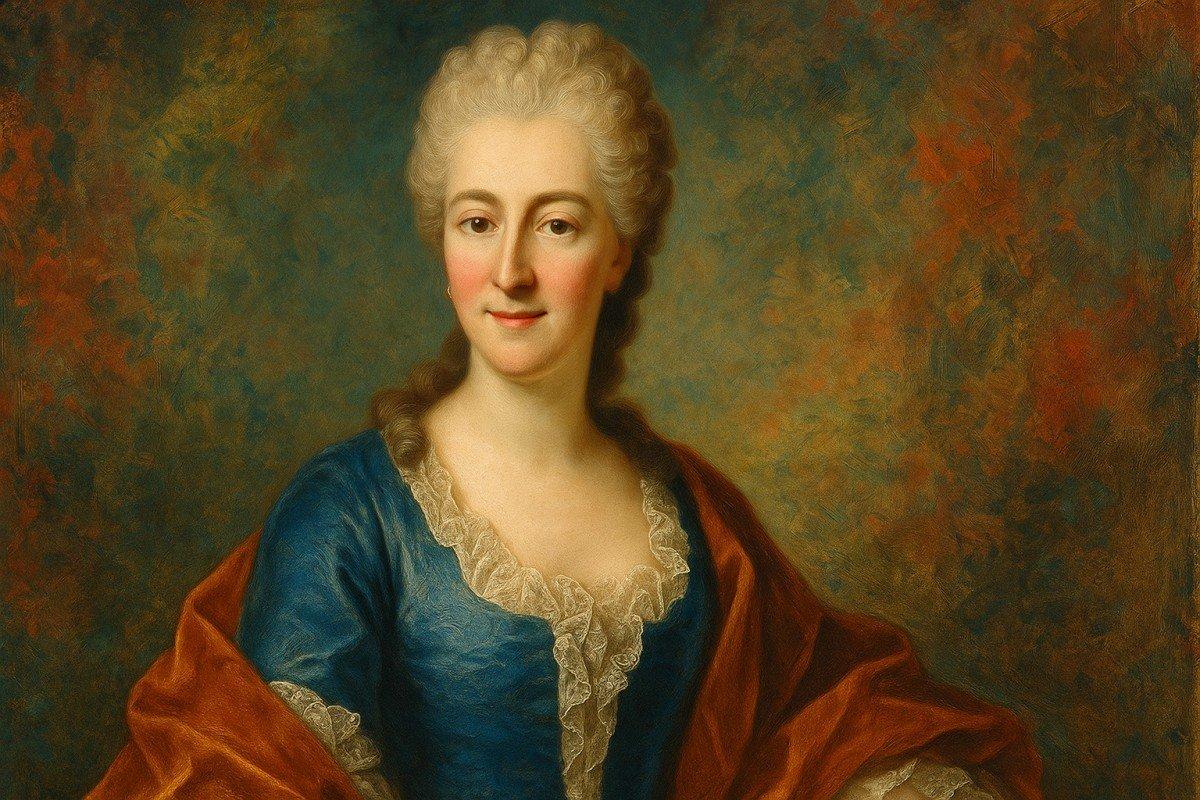The Remarkable Legacy of Émilie du Châtelet: When Coffee, Pregnancy, and Mathematical Brilliance Collided
Ever heard of the woman who translated Newton's masterpiece while pregnant at 42 and hopped up on coffee? No? Well, buckle up, because Émilie du Châtelet's story is the historical equivalent of running a marathon while solving quantum physics problems and growing a human—all at the same time.
Who Was This Scientific Powerhouse?
Gabrielle Émilie Le Tonnelier de Breteuil, Marquise du Châtelet (that's a mouthful, right?) wasn't your typical 18th-century aristocratic lady. Born in Paris in 1706, she refused to play by society's restrictive rules for women. Instead of focusing solely on becoming the perfect wife and hostess, she dove headfirst into mathematics, physics, and philosophy at a time when women weren't even allowed in universities.
I'm always amazed at how she managed to navigate the male-dominated scientific world of her time. Can you imagine trying to be taken seriously as a scientist when people literally believed women's brains weren't built for complex thinking? Talk about an uphill battle!
The Newton Project: A Race Against Time
Here's where things get wild. At age 42, du Châtelet discovered she was pregnant. In the 1700s, this was basically a death sentence for a woman her age. Maternal mortality was frighteningly high, and du Châtelet seemed to sense her time was running out.
Instead of resting or preparing for motherhood, she embarked on what might be history's most intense academic sprint. Her mission? Translating Isaac Newton's "Philosophiæ Naturalis Principia Mathematica" from Latin into French. But this wasn't just any translation.
Du Châtelet didn't simply convert Newton's words from one language to another. She:
- Added her own commentary and insights
- Clarified Newton's more complex ideas
- Incorporated algebraic solutions that weren't in the original
- Made Newton's groundbreaking work accessible to French readers
The kicker? She allegedly worked up to 20 hours a day, fueled by nothing but coffee and sheer determination. As someone who can barely function after pulling one all-nighter, I find this absolutely mind-boggling!
Coffee, Pregnancy, and Mathematical Genius
Let's talk about this 20-hour workday situation. Picture this: a heavily pregnant woman in her forties, surrounded by mathematical manuscripts, guzzling 18th-century coffee (which, FYI, was probably much stronger than our modern brews), and frantically writing as if her life depended on it.
In many ways, it did. Du Châtelet wrote to a friend: "I am taking advantage of anything that remains of the time I have to live... I want at least to finish my commentary on Newton."
Imagine the pressure! Most pregnant women in their forties today would be considered high-risk and advised to take it easy. Du Châtelet was like, "Hold my coffee while I revolutionize scientific understanding in France." That's some serious boss energy.
Beyond the Newton Translation
What makes du Châtelet even more impressive is that the Newton translation wasn't even her only contribution to science. Before her pregnancy marathon, she had already:
- Published "Institutions de Physique" (Foundations of Physics), an influential textbook
- Conducted experiments on the nature of fire
- Predicted what we now recognize as infrared radiation
- Challenged Voltaire's understanding of energy (yes, THE Voltaire—who happened to be her lover)
- Proposed that energy could be conserved, a revolutionary concept at the time
She accomplished all this despite having no formal scientific education. Talk about self-taught brilliance!
The Tragic Yet Triumphant Ending
Here's where I wish I could change history. Du Châtelet's premonition was correct. Six days after giving birth to a daughter in September 1749, she died from a pulmonary embolism—a common complication of childbirth in that era.
The heartbreaking irony? She completed her translation of Newton's Principia just before her death. Her work was published posthumously in 1759 and remains the standard French translation of Newton's masterpiece to this day.
Would you believe that for centuries, her scientific contributions were largely overshadowed by her relationship with Voltaire? It's only in recent decades that historians have given her the credit she deserves as a scientific mind in her own right.
Why Her Story Matters Today
When I think about du Châtelet's legacy, I can't help but wonder how many other brilliant women throughout history have been erased or diminished. Her story is a powerful reminder of female intellectual capacity in an era that denied it existed.
What strikes me most about du Châtelet isn't just her intelligence, but her audacity. She refused to accept the limitations society placed on her gender. She studied what interested her, challenged established thinkers, and literally worked until her final days to leave behind a scientific legacy.
In today's world, where women still face barriers in STEM fields, du Châtelet's determination feels both inspiring and sadly relevant. She wasn't just ahead of her time—she was sprinting miles ahead while the rest of society crawled forward.
The Coffee-Fueled Lesson
So next time you're pulling an all-nighter with your trusty coffee mug, remember Émilie du Châtelet. Her caffeine-powered determination literally changed scientific history.
Maybe the real lesson here isn't just about her brilliant mind or her contributions to physics. Perhaps it's about the power of knowing your time is limited and choosing to spend it pursuing what matters most to you—whether that's translating groundbreaking scientific works or following whatever passion drives you.
Du Châtelet knew she was racing against the clock, and she made every caffeine-fueled minute count. If that's not inspiration to get off TikTok and finish that project you've been putting off, I don't know what is! :)



